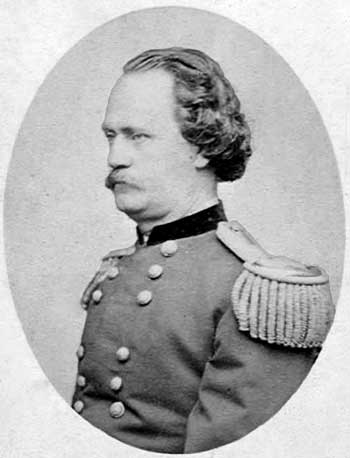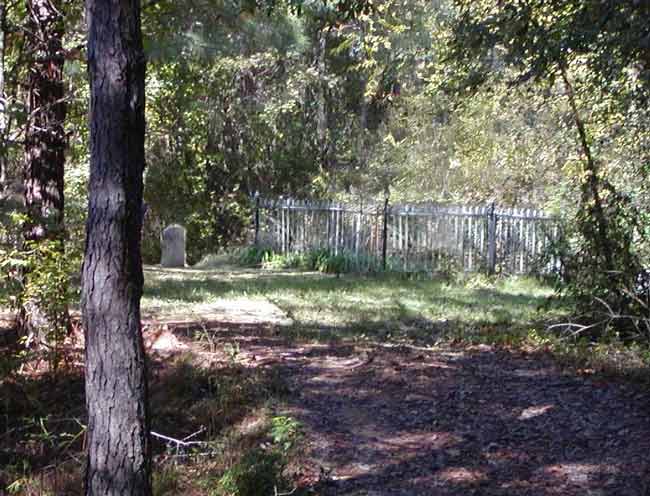|
Alvin P. Hovey Reminisces the Vicksburg Campaign By Rebecca Blackwell Drake During the Vicksburg Campaign, General Alvin P. Hovey was commander of the 12th Division, XIII Corps, Army of the Tennessee. On May 16, 1863, his division bore the burnt of the Battle of Champion Hill. In 1885, when Hovey gave this interview with the Indianapolis Journal, he was 64 years old and a practicing lawyer in Mount Vernon, Indiana. The following year, he was elected to Congress and served from 1887 until 1889. In January of 1889, he reached the peak of his political career when he was elected to serve as the 21st governor of Indiana.
Following a five year stint as U. S. Minister to Peru (1865-1870), Alvin P. Hovey returned to the United States prepared to carve out another chapter in life, this time not as a general in the Union Army but as a lawyer, congressman and governor of Indiana. During the winter of 1885, Hovey met with a reporter from the Indianapolis Journal and by way of conversation inquired, “Have you heard anything today about Grant’s condition?” Aware that Grant was suffering from throat cancer, the reporter replied, “No, I have not.” In a voice thick with emotion Hovey spoke nostalgically of his former commander-in-chief: “Well, the old hero is not afraid of death. I touched Grant many times during the war. I thought then he was something of a fatalist. Now, at Vicksburg - but I mustn’t get started in on a war story.” Encouraged by the reporter, former Maj. Gen. Hovey, Twelfth Division, XIII Army Corps, Army of the Tennessee, reminisced several war incidents which took place in 1863 while serving under General Grant in the Vicksburg Campaign: “About the last of June or the first of July, 1863, the different divisions of our army got very near to the fortifications of Vicksburg by subterranean approaches to their works. It was customary for the commanding officers of the divisions to visit their works every day, while their headquarters were securely placed in some ravine nearby. On my front it was necessary to pass through a narrow way or valley which had shrubbery on each side. This open place was 25 or 30 yards wide, and in full view of the enemy. Nobody would pass this space without a salute [gunfire] from the rebels. I never went over without putting spurs to my horse and hugging his neck as closely as possible. One morning early, General Grant called at my headquarters and asked me to show him the condition of the works in my front. When we came to the edge of the open space I said, ‘General when I pass over this open space the enemy always salutes me and I dash the horses across at full speed.’ He replied with his characteristic terse calmness, ‘They can’t hurt me,’ and deliberately walked his horse over. I walked over also, as I was constrained to do, and we received a rattling salute from the enemy. The bullets whistled around with more familiarity than was agreeable to me, but Grant smoked as composedly as though on dress parade.” “By the way,” Hovey said, “I think I can tell you something about Grant on another occasion. The battle of Champion Hills was one of the bloodiest of the war. The division I commanded belonged to McClernand’s corps. By a delay caused by my division being ordered to make a feint on the enemy’s lines near Baker’s Creek, while the main army passed round the west flank of the enemy toward Bolton Station, my division became detached from the main corps to which it belonged. We first came in sight of the enemy near what is now called Champion Hills. At that time, my division was on the extreme right – the main body of McClernand’s corps being something two or three miles to the left. “As soon as the enemy was perceived, scouts were sent out to ascertain as far as possible his real condition. Gen. James R. Slack commanded one brigade in my division and Gen. George F. McGinnis the other. Here we waited some 30 or 40 minutes with the enemy’s cannons on the hill in full view. Gen. Grant rode up and I pointed out to him the enemy’s position. His headquarters were at the Champion’s house. I asked him if I should advance. He said, ‘Not yet; wait till McPherson comes up on your right and takes position to support you.’ Gen. McPherson’s and Gen. John A. Logan’s forces soon arrived, and as soon as they got in position I again asked Gen. Grant if I should make the attack to which he laconically answered, ‘Yes.’ “Slack’s brigade bore off to the left, and McGinnis’s to the right. McGinnis struck the battery full, but Slack diverged a little to the left. It was a close hand-to-hand fight between McGinnis’ boys and the rebels over the battery and the guns were ours. Both brigades then advanced to a second battery, perhaps a quarter of a mile in the rear of the one we had captured, and after a fierce fight took that also. But the enemy, reinforced, returned in great numbers and drove us back to the location of the first battery. "We made a second charge and the second battery was again taken. Again with overwhelming force the enemy pressed my force back down from the brow of the hill beyond the first battery. This was a critical moment. My men were fighting stubbornly, but against almost overpowering odds. If the centre had been broken our army would have been divided into two parts. There were 28 [16 according to the Official Records] pieces of artillery under my command and again being reinforced I placed those 28 pieces on a mound in a graveyard, and with shot, shell, and canister poured an enfilading fire into the advancing hosts. The place was well timbered and thick with underbrush, but it was mowed almost as with a scythe. They couldn’t stand that fire and swung back. Logan came in on the right and took several thousand prisoners. The enemy gave way and Loring’s force broke off from the rebel line and rushed back to Jackson. This was as I said before, the bloodiest fight of the whole campaign. “Gen. Slack is dead; Gen. George F. McGinnis, as you know, still lives here in this city. McGinnis was a magnificent soldier and a fine drill master. I can shut my eyes now and see McGinnis’s head sticking up above the brigade like a tall turkey cock. At Champion Hills my command lost in killed and wounded nearly 1,600 men, besides 500 more of those who were sent to our assistance…” Five months following Hovey’s meeting with the Indianapolis Journal reporter, the banner news of Grant’s death spread across the nation. With his beloved wife Julia at his side, he succumbed to throat cancer on July 23, 1885, only days after finishing his book, Personal Memoirs of U. S. Grant. Four years later Alvin P. Hovey, Grant’s comrade in war and friend in life, was elected governor of Indiana but died in office on November 23, 1891.
Sources: The Indianapolis Journal, March 8, 1885. The New York Times, March 14, 1885 Hinds County land records: Book 4, Page 27, 1846, R. A. Abney to Zack Wardlaw, describes a quarter-acre family graveyard in the SE1/4 of Section 20, T6N, R3W, at Midway Station (Champion Hill). The Champion’s purchased the property in 1853.
Editor's Note: The number of cannons given in the newspaper article does not correspond to the number given by Hovey in the Official Records. The mound and graveyard mentioned by Hovey can still be seen at Champion Hill today, but is located on private property and not accessible to the public except for battlefield events at Matilda Champion’s House. The old graveyard is about 200 yards north of the Champion Hill road on the sunken road leading to Matilda's 1866 House and Midway Station. Further study will investigate: a) the number of cannons and b) the placement of the cannons as described by Hovey using the mound in the cemetery as a focal point. The study will involve available roads of the time and ridges where cannons could have been placed. |
||||||
|
| Home | Grant's March | Pemberton's March | Battle of Champion Hill | Order of Battle | Diaries & Accounts | Official Records | | History | Re-enactments | Book Store | Battlefield Tour | Visitors |
|
||||||


